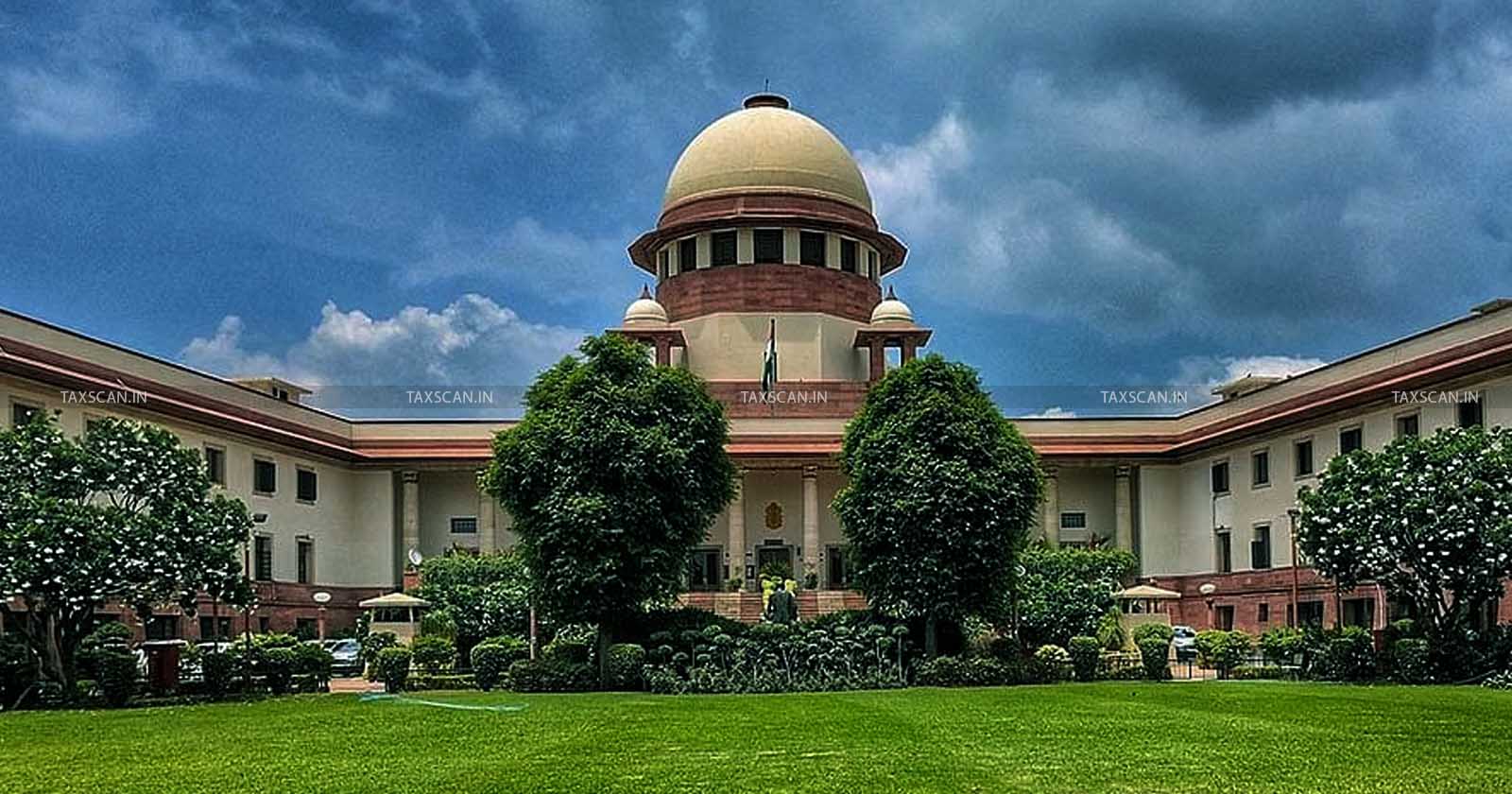Claim submitted by RP under CIRP with Proof cannot be Overlooked on mere submission in Wrong Form: Supreme Court [Read Judgement]

RP – CIRP – Overlooked – mere submission – Wrong Form – Supreme Court – taxscan
RP – CIRP – Overlooked – mere submission – Wrong Form – Supreme Court – taxscan
In a significant ruling the Supreme Court held that the claim submitted by the Resolution Professional ( RP ) under the Corporate Insolvency Resolution Process ( CIRP ) with proof cannot be overlooked on mere submission in the wrong form.
These appeals under Section 62 of the Insolvency and Bankruptcy Code, 20161 are directed against the judgment and order of the National Company Law Appellate Tribunal ( NCLT ), New Delhi Bench, whereby the appellant’s appeal against the order of the National Company Law Tribunal, New Delhi4 dated 05.04.2021 has been dismissed.
The NCLT, rejected the aforesaid applications, inter alia, on the ground that, despite lapse of seven months between the date of filing its claim in January, 2020 and the date of approval of the plan in August 2020, the appellant took no steps against the RP for not taking a decision on its claim, even though it was aware about initiation of the CIRP, and now it is not permissible to take a decision on the claim application of the appellant as the CIRP is complete consequent to approval of the plan.
The assessee submitted that at the time of approving the resolution plan, the adjudicating authority failed to consider whether the plan had made provisions commensurate to appellant’s claim, and the statutory charge which the appellant enjoyed over the assets of the CD. Not only that, it overlooked the ownership and statutory rights of the appellant over the land and thereby failed to consider whether the plan was feasible and viable. In absence of such consideration, the order of approval stood vitiated.
The counsel for the respondent contended that the issue as to whether dues payable to an Industrial Area Development Authority, like the appellant, towards lease/ allotment premium / rental, would be a financial debt or not is no longer res integra, as it stands settled by a decision of the Supreme Court in Anand Sonbhadra’ s case.
Setting aside the aforesaid findings, the Bench Comprising Chief Justice DY Chandrachud and Justice JB Pardiwala and Justice Manoj Misra observed that the Form in which a claim is to be submitted is directory in nature, and the claim cannot be rejected just because it was submitted in different form.
The Bench noted that “No doubt, the record indicates that the appellant was advised to submit its claim in Form B (meant for operational creditor) in place of Form C (meant of financial creditor). But, assuming the appellant did not heed the advice, once the claim was submitted with proof, it could not have been overlooked merely because it was in a different Form.” “Here, the resolution plan fails not only in acknowledging the claim made but also in mentioning the correct figure of the amount due and payable. According to the resolution plan, the amount outstanding was Rs. 13,47,40,819/- whereas, according to the appellant, the amount due and for which claim was made was Rs. 43,40,31,951/- This omission or error, as the case may be, in our view, materially affected the resolution plan as it was a vital information on which there ought to have been application of the mind” the Court held.
To Read the full text of the Order CLICK HERE
Support our journalism by subscribing to Taxscan premium. Follow us on Telegram for quick updates


